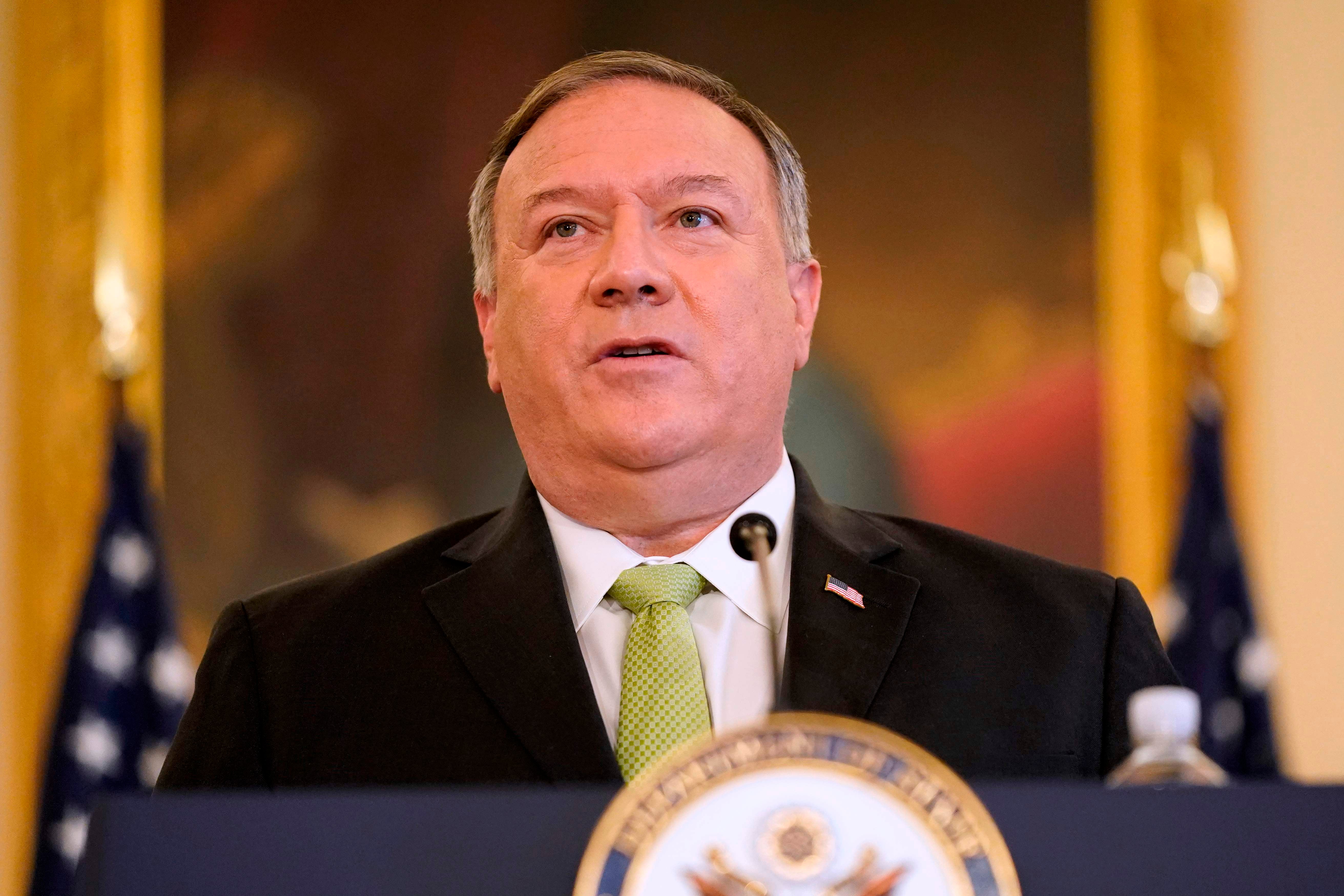Trump administration to impose sanctions on Iran as Europe warns it will trigger humanitarian crisis
Move will cause serious medicine shortages, experts warns

Your support helps us to tell the story
From reproductive rights to climate change to Big Tech, The Independent is on the ground when the story is developing. Whether it's investigating the financials of Elon Musk's pro-Trump PAC or producing our latest documentary, 'The A Word', which shines a light on the American women fighting for reproductive rights, we know how important it is to parse out the facts from the messaging.
At such a critical moment in US history, we need reporters on the ground. Your donation allows us to keep sending journalists to speak to both sides of the story.
The Independent is trusted by Americans across the entire political spectrum. And unlike many other quality news outlets, we choose not to lock Americans out of our reporting and analysis with paywalls. We believe quality journalism should be available to everyone, paid for by those who can afford it.
Your support makes all the difference.The Trump administration has decided to impose new sanctions on Iran's financial sector in defiance of European allies who warned that the move could have devastating humanitarian consequences on a country reeling from the coronavirus and an ongoing currency crisis, three officials familiar with the decision said on Wednesday.
The measures will target the few remaining banks not currently subject to secondary sanctions in a move European governments believe is likely to diminish channels Iran uses to import humanitarian goods, such as food and medicine, officials said.
Defenders of the plan, which is expected to be announced on Thursday, say further isolating Iranian commerce fits with the Trump administration's efforts to crush the Iranian economy in order to bring Tehran to the negotiating table. They also say the Treasury Department can mitigate the humanitarian consequences by issuing letters to companies permitting some sales.
The move represents a major pre-election push on a signature Trump administration policy that has succeeded in devastating the Iranian economy while failing to moderate Tehran's behavior or limit its nuclear program. Since President Donald Trump withdrew from the Iran nuclear deal in 2018, Tehran has exceeded the limits of the agreement and enriched more uranium than it did before the accord's signing. US officials in Iraq have also experienced an uptick in rocket fire and other attacks by Iranian-backed militias.
The proposal to blacklist the entire Iranian financial industry has been pushed by Israeli officials and the Foundation for Defence of Democracies (FDD), a hawkish US nonprofit that has advocated for regime change in Iran.
"To land a 12th-round economic knockout, it's time for Mr Trump to throw one more punch: Blacklist the entire Iranian financial industry," wrote FDD's Mark Dubowitz and Richard Goldberg in a 25 August opinion article in The Wall Street Journal.
The action relies on an executive order Mr Trump issued in January giving Secretary of State Mike Pompeo and Treasury Secretary Steven Mnuchin broad authority to sanction any part of Iran's economy.
Some Iran hawks hope the move will collapse an Iranian economy already squeezed by lost oil sales and a vast array of US sanctions imposed on the country after Mr Trump withdrew from the deal.
The Trump administration was initially cool to the idea but the combined lobbying efforts of Iran hawks and a growing chorus of GOP lawmakers, including senators Ted Cruz of Texas and Tom Cotton of Arkansas, succeeded in advancing the policy, officials said.
The State Department and Treasury Department declined to comment. Other officials spoke on the condition of anonymity to discuss US policy .
Opposition to the move inside and outside the Trump administration is related to the delivery of humanitarian goods to the country. Last year, Iran imported $1bn worth of medical goods and grain worth $3.5bn.
European officials worry that if the remaining Iranian banks are sanctioned, Iran's foreign assets practically would be frozen, "thus further exacerbating the shortage of foreign currency to pay for humanitarian imports", a senior European official said.
"The concern has always been that sanctions simply criminalise all financial engagement with Iran," said Suzanne Maloney, an Iran expert at the Brookings Institution. "The biggest concerns have been around medicine and medical devices. There have been shortages of basic drugs such as insulin and specialised chemotherapy and other lifesaving treatments. As the toll of sanctions has widened, this has intensified with concerns about basic poverty in Iran."
The move is likely to further devaluate Iran's currency, create a liquidity crunch and be viewed in Tehran as a significant escalation, said Esfandyar Batmanghelidj, founder of Bourse & Bazaar, a think tank focused on Iran's economy.
The Treasury Department may take measures to permit sales of some goods with "comfort letters", but European officials have doubted their effectiveness.
"Even clear humanitarian exceptions could only counteract this to a limited extent," said a senior European official.
Washington Post






Join our commenting forum
Join thought-provoking conversations, follow other Independent readers and see their replies
Comments